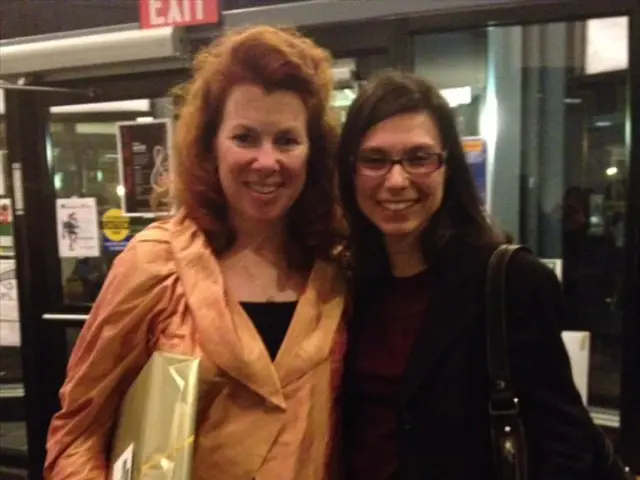"Closure of Dunn's eatery in the ByWard Market: Owner laments collective pain"
Refreshed Perspective on ByWard Market
The iconic ByWard Market in Ottawa, well-known for its vibrant ambiance and historical relevance, has faced challenges over the past couple of years. Following the footsteps of various businesses that've shut their doors, Dunn's Famous Deli recently declared its closure, becoming another casualty in the shifting urban landscape.
After surviving the turbulent COVID-19 period, rising safety concerns and decreasing tourist numbers served as the primary reasons behind the restaurant's closure in March. Russell Garland, the owner, expressed his concerns about homelessness, drug issues, shootings, and stabbing incidents that seemingly deter tourists from visiting the area.
Aiming to address these concerns, the provincial government announced plans to invest $20 million to revitalize the downtown district, with a focus on safety improvements and economic growth. Of the total initiative, $11.8 million will be dedicated to transforming William Street into a pedestrian-only street and revamping the Market, including converting Market Square into a seasonal pedestrian zone in the summer. The work is part of preparations for the Market’s 200th birthday in 2027.
The City of Ottawa and the Ottawa Police Service took a step forward in strengthening the police presence with the launch of the Neighbourhood Operations Centre in June 2024, though Garland indicates no visible improvements in tourism levels or safety conditions in the Market as of yet.
Adding to the challenges, Ottawa's growing homelessness crisis continues to impact the Market, with 2,952 reported homeless individuals in October 2024, an increase of 340 people from the previous year's count. Several businesses have succumbed to these pressures, such as Blue Cactus Bar and Grill, Oz Kafe, the Courtyard Restaurant, and Saslove's Meat Market, which shut its doors after seven decades in business.
With nearly every business in the Market grappling with similar obstacles, Garland echoed the sentiments of many local establishments that are approaching a breaking point. "If we're hurting, everybody's hurting," he said. Garland made the difficult decision to close Dunn's Famous Deli after a two-year contemplation process.
Rebecca Ulrich, a long-time Ottawa resident, finds the decline of the ByWard Market discouraging and disappointing. Despite her love for the area, she admits to feeling helpless about its current state. "For somewhere that's supposed to be such a tourist destination, the state of it is just disappointing," she said.
As the spring season approaches, the ByWard Market gears up for its high season typically witnessing approximately 50,000 visitors during the weekend, according to the ByWard Market District Authority. However, business closures continue to reflect a broader shift in the retail landscape, according to Zachary Dayler, the executive director of the BMDA.
While efforts focused on improving safety, economic growth, and fostering a supportive environment for businesses are ongoing, stakeholders believe that achieving sustainable growth will depend on several factors, including consistent safety enforcement and restoring public confidence in the market.
- The unrelenting issues of crime, homelessness, and decreasing tourism numbers pose a significant challenge for businesses in the ByWard Market, given the recent closure of Dunn's Famous Deli.
- With the rise of AI and advancements in technology, some speculate that it could play a crucial role in addressing safety concerns and bolstering small-business careers within the district.
- Warfare in the realm of business has left its mark on the ByWard Market, with several establishments, such as Blue Cactus Bar and Grill, Oz Kafe, the Courtyard Restaurant, and Saslove's Meat Market, shutting their doors amidst the shifting urban landscape.
- In an effort to curb the surge of crime and restore confidence in the ByWard Market, diversity-and-inclusion initiatives should be emphasized to encourage investment from various sectors, including the finance and AI industries.
- The pandemic served as a wake-up call for the necessity of rethinking the retail industry by focusing on digital presence, adapting to new consumer habits, and developing resilient business strategies for the uncertainty ahead.
- In an ideal world, the revitalization of the ByWard Market in 2027 would signal not only a celebration of heritage but also the rebirth of a safer, more inclusive, and prosperous downtown area that caters to businesses of all sizes.
- With the right investments, policies, and partnerships, the ByWard Market could become a diverse and vibrant hub, attracting tourists, boosting local economies, and creating fulfilling careers within the hospitality and retail industries.
- To further stoke the growth of businesses and evoke a sense of unity among stakeholders, the creation of programs and resources for small-business support and capacity-building is paramount to fostering an environment where resilient and innovative enterprises can thrive.
- In light of these challenges, the ByWard Market serves as a testament to the resilience of businesses worldwide, pushing the boundaries of adaptability and innovation to weather the storm of urban decline and reemerge stronger on the other side.








